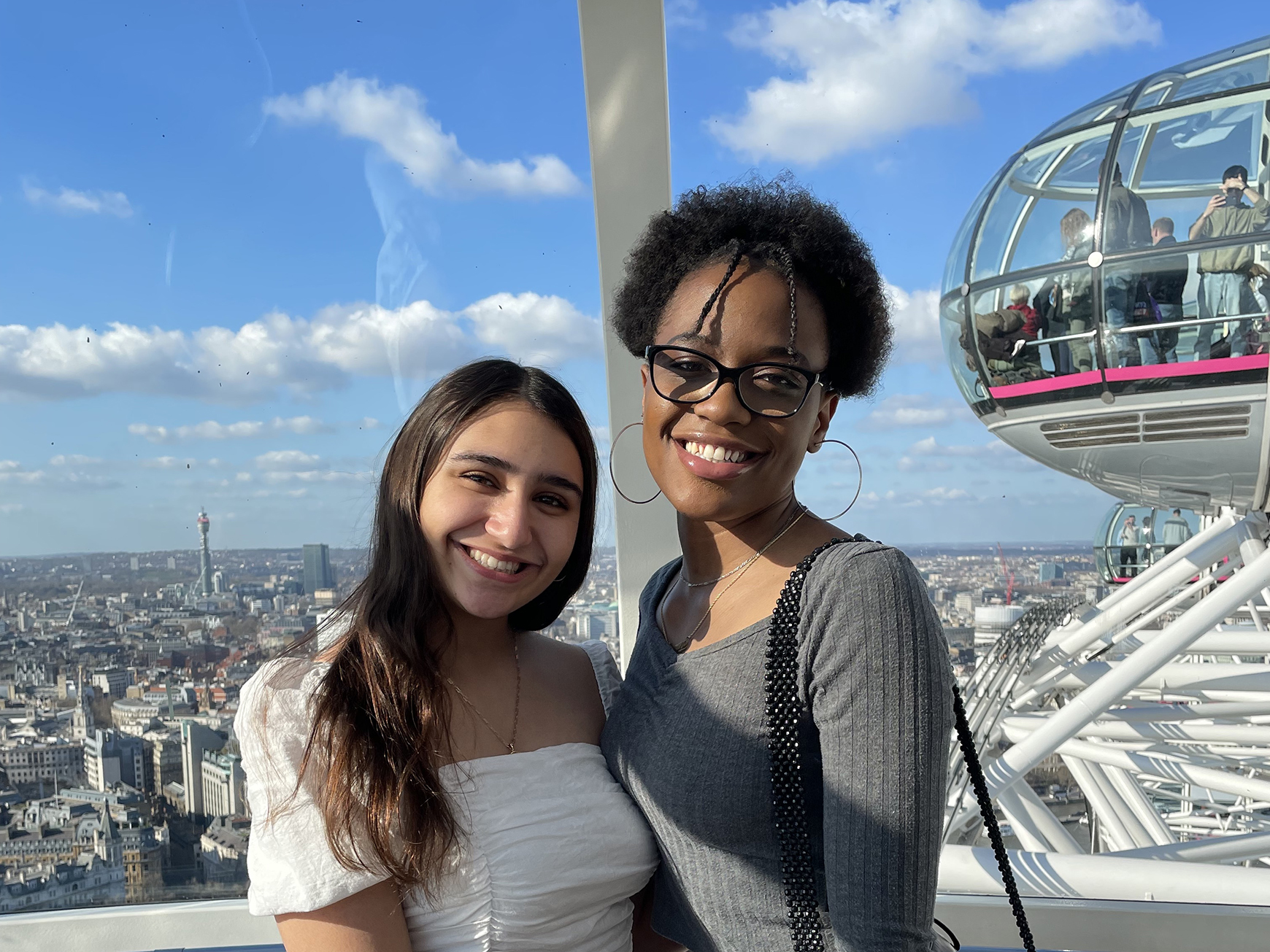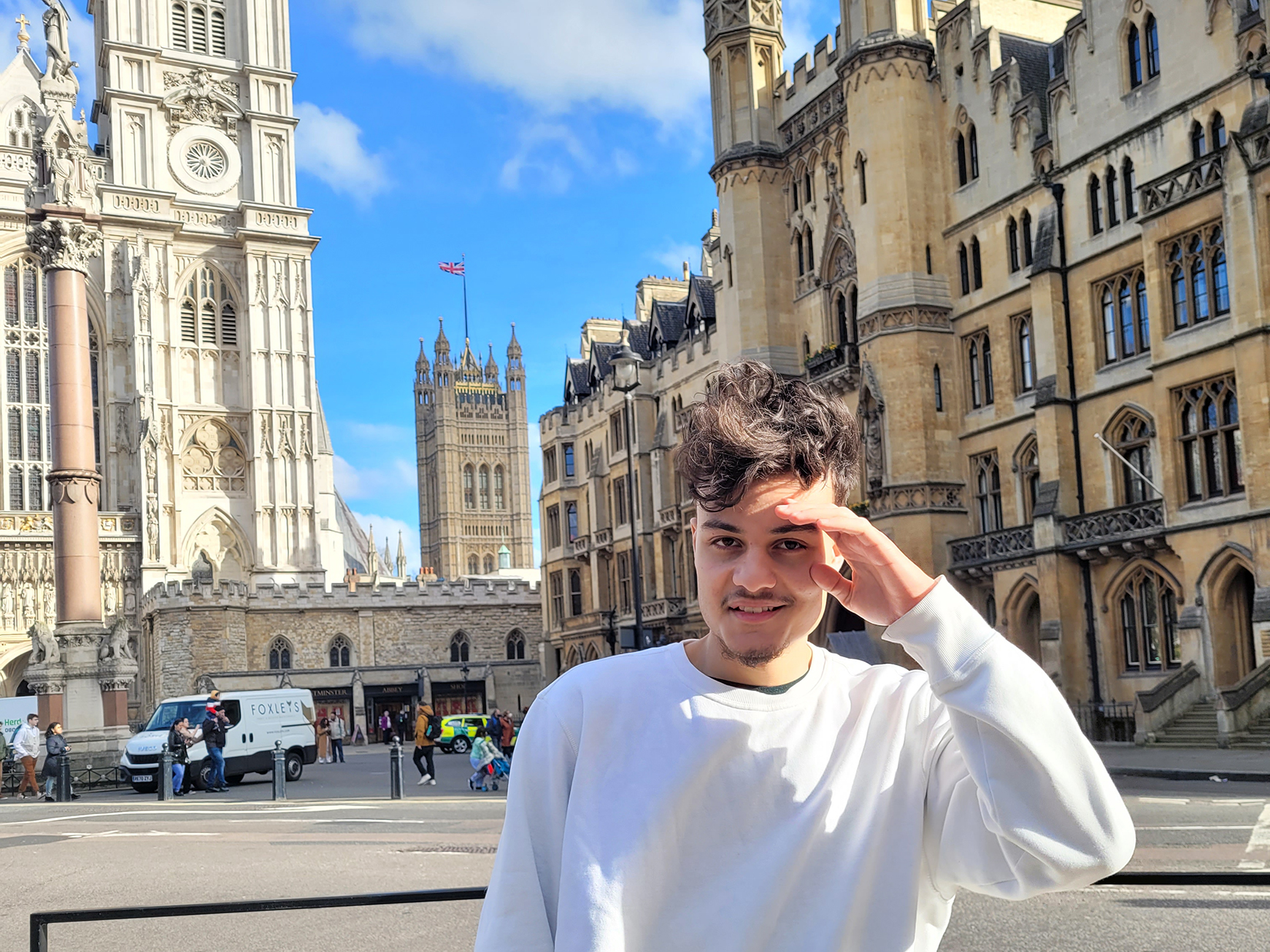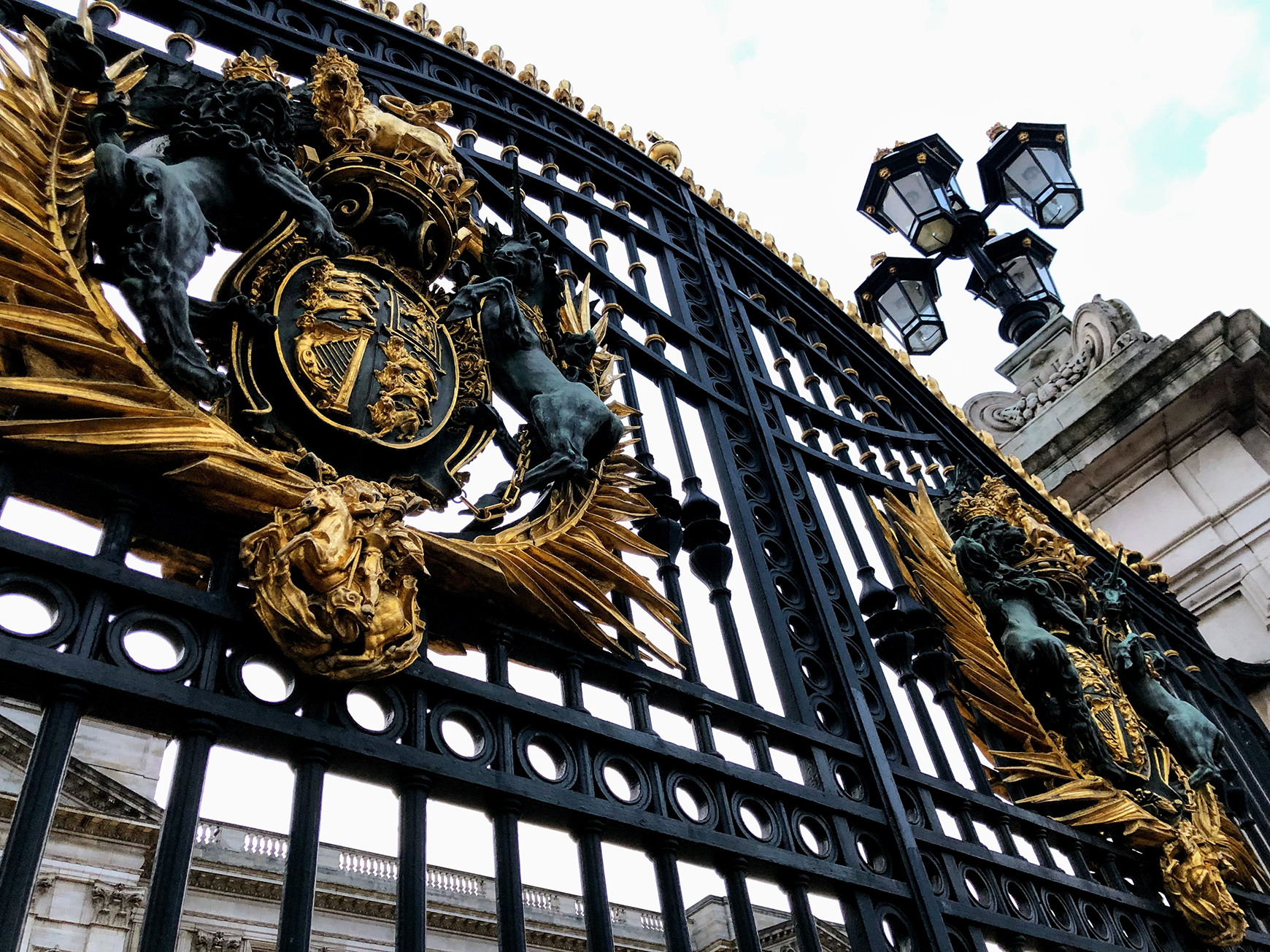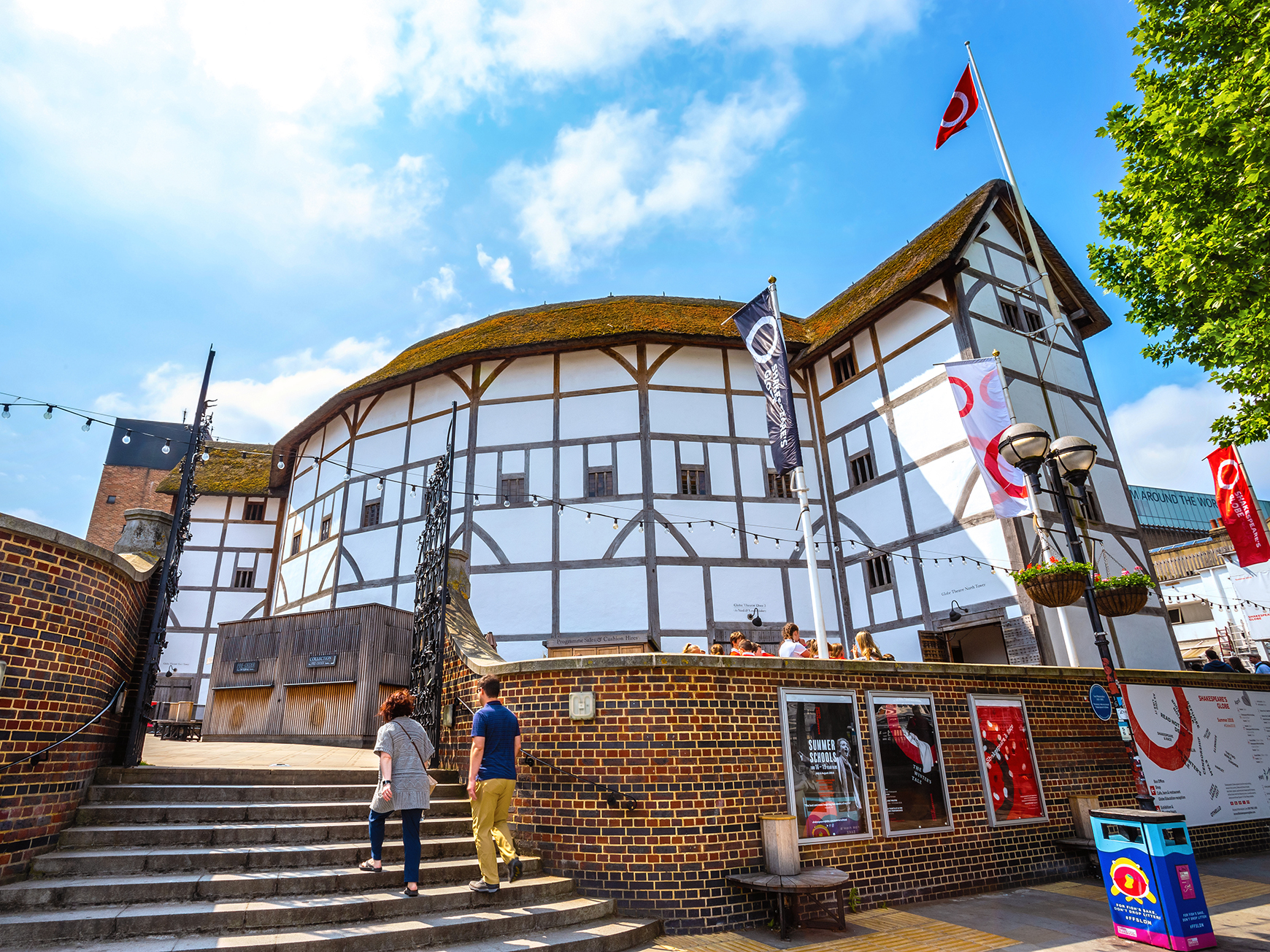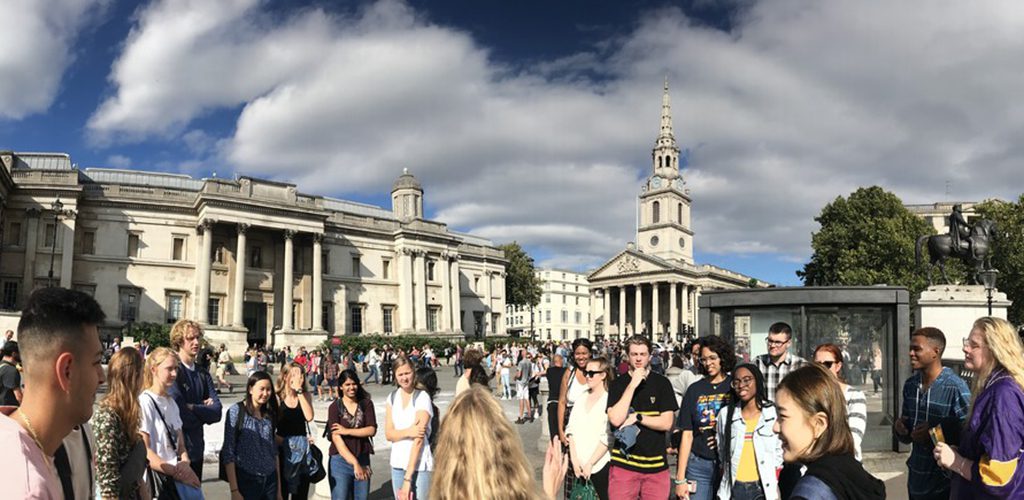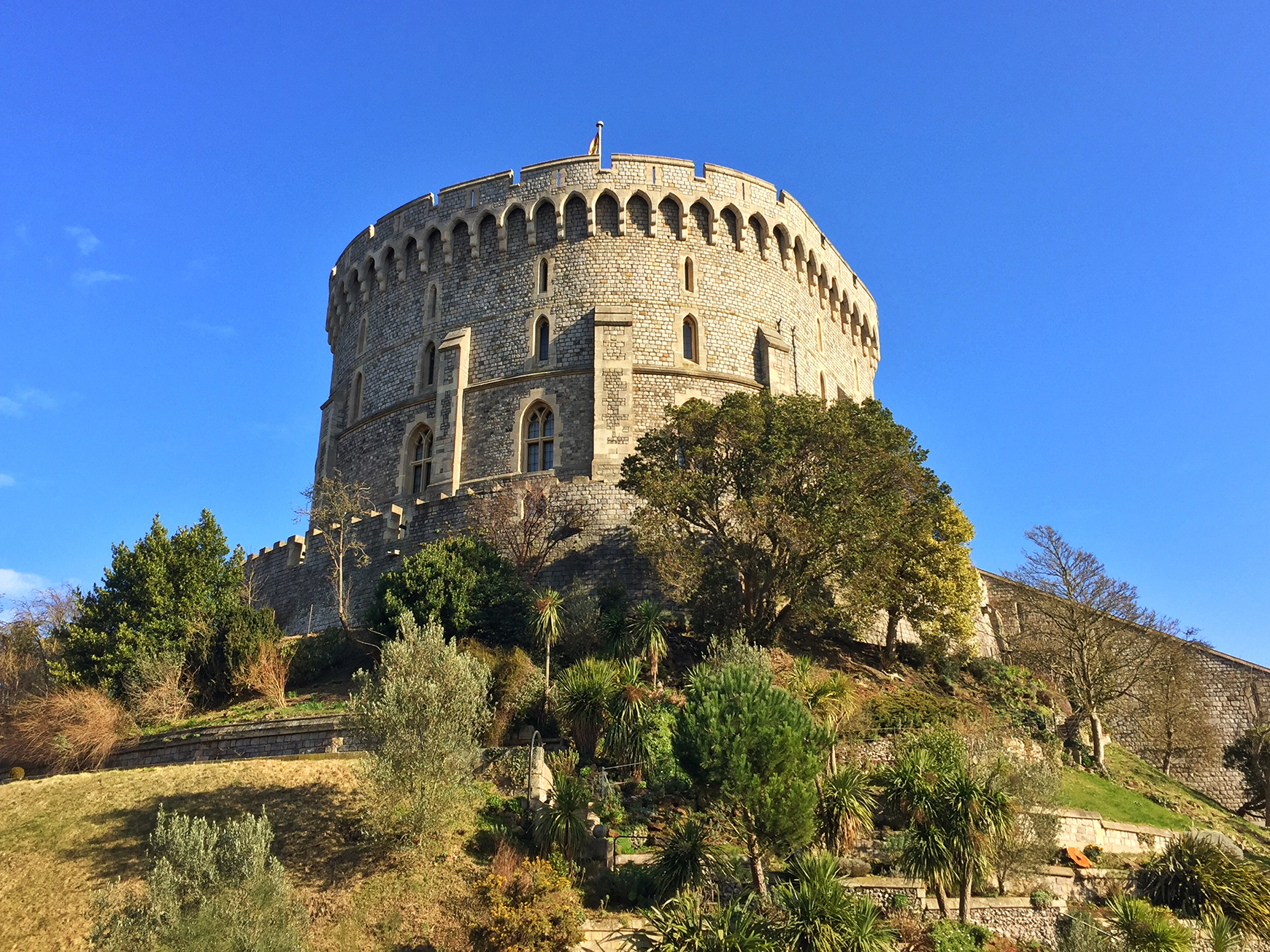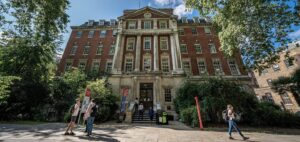London, England
IFSA Summer in London
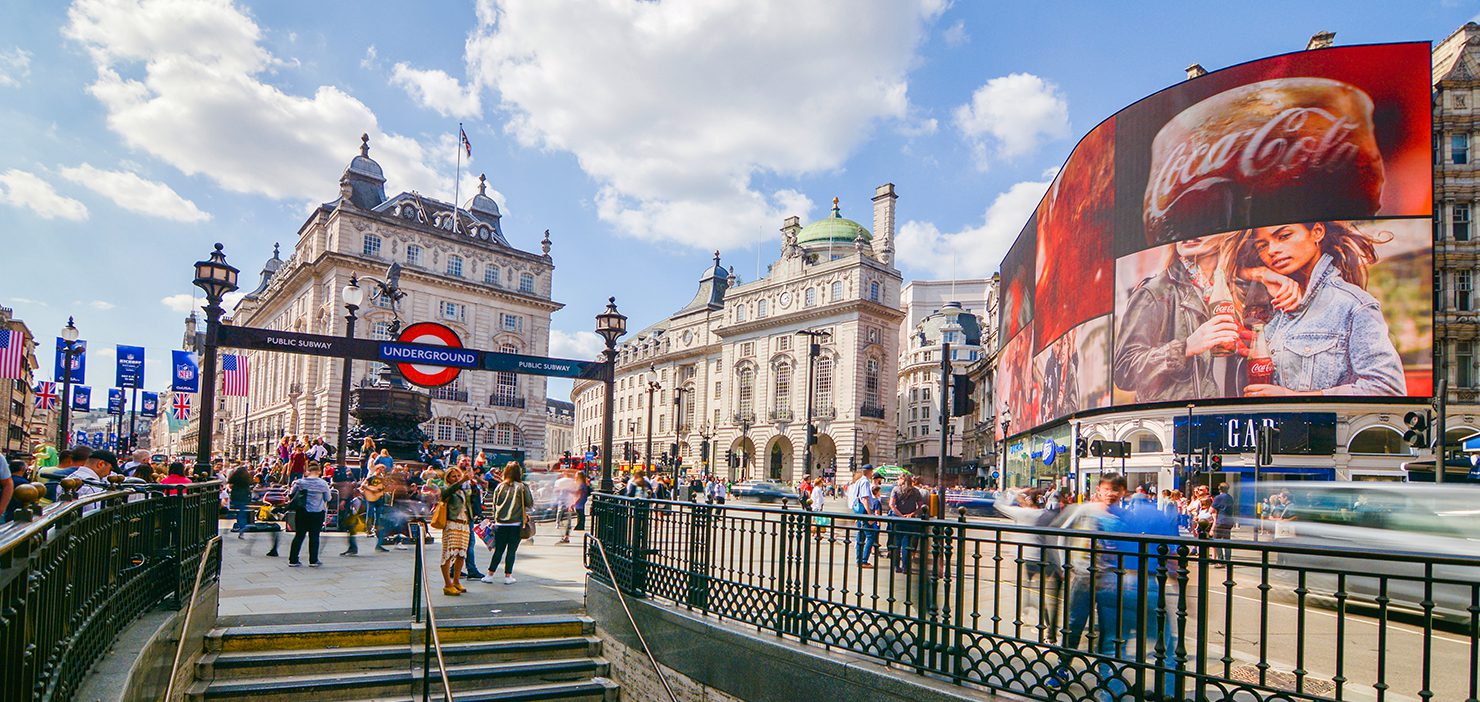

Program Overview
DESIGN THE ULTIMATE UK SESSION
Your London summer is full of options that suit your studies in business, arts, social science, or psychology. Take one or two classes per six-week session, diving into UK culture and a topic that fascinates you, from the computer game industry to forced migration, and London’s complex world of class, gender, and race to the economics of professional soccer. Along the way, you’ll have plenty of opportunity to get to know London’s traditions and history, and explore icons like Big Ben, Buckingham Palace, and the Tower of London.
This is an exclusive IFSA-Designed Program. Learn more about these affordable programs here.
Details at a Glance
Application deadline
Minimum GPA
2.00
Credit load
3–12
Housing
Apartment/Flat, Single Room Option
Instruction language
English
Language prerequisites
None
Visa required?
Not in most cases. Learn more.
Academics
During your IFSA Summer in London, customize your study abroad experience by taking one or two classes during the six-week Session 1 or take one or two classes during the six-week Session 2. You can also extend your studies by enrolling in both Session 1 and Session 2.
SESSION 1 CLASSES
Computer Games Cultures and Industry
This class explores the computer and video games industry from an interdisciplinary critical culture and creative industry lens, with readings, resources, classes, guest speakers, and site visits focusing on the intersection of business and culture in the computer games industry. From mass culture multinational corporations through to smaller ‘indie’ games developers, this class examines the evolving structure of the computer games industry with an in-depth exploration of industry innovation, investment, changing demographics, and cultural appeal and implications. (3 U.S. semester credit hours)
Social Psychology
Drawing directly from the fields of sociology and psychology, social psychology is the examination of the perceptions, thoughts, feelings, and behaviors of individuals within their social environments. This class provides a grounding in social psychology topics such as social cognition, attitudes, social influence, individual motivations, collective behavior, and cultural influences. Content and assignments are designed to illustrate how the individual and social interaction shape and are shaped by the cultures and social structures in which they exist. Students are introduced to methodologies used to investigate social psychology phenomena, and the course will aid students’ understanding of the application of social psychology research to “real world” problems. Several carefully selected in-class exercises are included in order to facilitate application of theory to practice. As a special topic of investigation, particular attention will be paid to the examination of socioeconomic class in Britain and its implications for social psychology issues in Britain. As part of the class, students will be guided by the instructor in brief visits to certain neighborhoods within London to provide rich context for discussions. In this way, the city of London will serve as a vibrant laboratory of learning. (3 U.S. semester credit hours)
New Media and Behavior
As individuals increasingly consume news from sources of personal choice and become producers of news through social media engagement, this class investigates communication patterns and human action. The relationship between media reporting and its impact on the psyche and decision making provides a basis for class discussions. In this class, students will be introduced to the field of media psychology. Through the application of theories of psychology and principles of communications, media psychology seeks to understand the interaction between media use, message content, and the effects on users. Students will explore issues of new media through the lens of various theories.
Specific topics of discussion will include the nature of participatory media culture, the complex interactions between media technologies, individuals and societies, and the differences between online and in-person communications and the connections of each to the ways in which humans make meaning of their worlds. We will ask ourselves questions such as: How does social networking affect our views of ourselves and others? How does our personal selectivity in news media consumption impact our behavior? What kinds of actions are taken by individuals through social media engagement that might be viewed as the production of news? The concepts of discourse, controversy and critique underpin the content and delivery of this highly interactive class. (3 U.S. semester credit hours)
Urban Identities: Gender, Race, and Class in London
Drawing from anthropology and sociology, this class utilizes intercultural learning theories to foster awareness of one’s own perspectives as well as those of the myriad communities comprising London. Multiple approaches to framing the multicultural city and appreciating common and contested spaces as inherent to urban diversity are included. This class will examine the role, function, and effects of identity as it relates to the lived experiences of Londoners. While case studies examine gender, race, religion, and class specifically, the class will approach identity from the perspective of intersectionality, in which the dimensions of diversity are understood as the simultaneous interplay of multiple factors. (3 U.S. semester credit hours)
SESSION 2 CLASSES
Environmental Health
This class will focus on the relationship between humans and their surrounding environment. It will explore topics such as hygiene, hazardous waste, sanitation policies, natural resource use, and air quality. The goal is to analyze how these factors play a role in human health. (3 U.S. semester credit hours)
Forced Migration, Refugees, and Change
More than 60 million people are displaced by war, violence, and environmental destruction in the world today. Half of them are children. Refugees, along with other migrants, affect both their home countries as well as the countries receiving them. The large numbers of forced migrants have created crises in the countries of Europe as well as the United States and elsewhere. This class focuses on Europe and the ways that governments, NGOs, citizens, and researchers seek to solve problems associated with forced migration. This class uses ethnographic approaches to investigate the sociological and political forces behind the current increase of refugees and forced migrants currently impacting Europe. The class goal is to encourage solutions to problems this migration creates by looking at what has been accomplished and what can be done in the future. This is an experiential learning class encouraging the development of transferable skills that have practical use in solving these and other societal issues in Europe and elsewhere. (3 U.S. semester credit hours)
Multicultural Psychology
The purpose of this class is to place psychology in a global perspective, to understand that cultural differences impact behavior, but to explore through a cross-cultural approach those behaviors and mental processes that may be universal. In so doing, we will examine and critically analyze theories associated with multiculturalism and diversity. This class examines how “cultural traditions and social practices regulate, express, and transform the human psyche, resulting less in psychic unity for humankind than in ethnic divergences in mind, self, and emotion” (Shweder, 1991, p. 91). It will explore the ways in which psychology is socially constructed and will pay particular attention to the following factors as they influence human development: oppression, language, acculturation, economic concerns, racism and prejudice, sociopolitical factors, child-rearing practices, religious practices, family structure and dynamics, and cultural values and attitudes. We will explore the meaning of culture and how it affects our thoughts and behavior. Culture is a powerful influence, and often an invisible one. If we can learn to see this invisible force in our own lives, we can come to better understand the role culture plays in our interactions with those who have different cultural expectations. While cultural differences impact our behavior, what sorts of behaviors and thought processes do we share? What commonalities can be found? And what do these observations tell us about the development of multicultural competencies, whatever they may be? Questions such as these will guide our discussions. (3 U.S. semester credit hours)
Marketing Soccer from Local Teams to Global Standards
When Celtic Glasgow won the European Cup in 1967, all 11 players were born within 30 miles of the club’s ground. Today, the top soccer teams in the world predominantly feature foreign players and strive to attract a global fan base. This class explores how major soccer teams have transformed into global luxury brands, employing sophisticated marketing strategies to target international audiences and convert fans into profitable customers. Furthermore, this class critically examines the current model of relying on foreign players and pursuing global fan bases. Students analyze the potential consequences of this shift, including the possibility of fans becoming completely disenchanted with the sport as it evolves into a more globalized and commercialized entity. By combining theoretical knowledge with practical experiences, such as stadium visits and attending local games, this class provides students with a comprehensive understanding of the complex relationship between soccer teams, their finances, marketing strategies, and the global fan base they seek to cultivate. (3 U.S. semester credit hours)
APPLICATION REQUIREMENTS
Eligibility
- You must be at least 18 years of age. Students under 18 may be accepted on a case-by-case basis.
- You must be currently attending or recently graduated from a U.S. or Canadian community college, technical college, two-year college, four-year college, or four-year university.
- You must have completed at least one (1) full-time semester of study at your home institution before the beginning of the term.
Recommendation Letter
Not required.
TRANSCRIPT
Upon completion of your program, IFSA will send an official Butler University transcript to your home university with your coursework converted to the U.S. semester credit hour system. You will also have access to an unofficial transcript in your IFSA Student Portal. The transcript reflects classes taken, credits attempted, and grades earned during your term abroad. This service is included in your study abroad program at no additional cost. See our Transcripts page for more information.
Excursions
Activities and excursions are designed to pull you into the communities you visit and encourage cultural connections of every kind. There’s no extra fee to participate in these optional outings—everything is included in your program fee.
Below are a selection of activities and excursions from previous terms; options may vary for your program. Due to the seasonal nature of many of program activities, we cannot guarantee a specific activity or excursion will be available in a given term or program.
- London’s Southbank Walk and Borough Market: Wander the River Thames then nosh on fish and chips, Thai curry, and more—there are hundreds of produce and street food stalls to choose from. Soak up some history as you refuel—food markets have stood here since the Middle Ages.
- The Great British Bake Off Experience: Step into the famous white tent and don your apron for this immersive baking experience. Perfect for fans of The Great British Bake Off, you’ll work in pairs and bake a dessert against the clock that will be judged by the head baker. You’ll even be able to take home your creation at the end!
- Buckingham Palace: On the bucket list for countless UK visitors, here’s your chance to see the majestic London home of British monarchs since Queen Victoria in 1837. (Look for the Royal Standard’s yellow, red and blue squares that signify the king is in residence.)
- Regent’s Park Open Air Theatre: London is famous for its diverse, creative and unexpected theater landscape. During the warmer summer months, students can enjoy all the London theater scene has to offer in the stunning surroundings of a royal park.
- Independence Day BBQ: You may be in the UK, but you can still celebrate the fabulous U.S. Independence Day with a festive get-together and meal.
- Brighton Day Trip: Widely recognized as UK’s gay capital, this seaside city is also where the mods and rockers were ’60s rivals. Home of Palace Pier, Brighton Royal Pavilion, historic streets, bohemian shops—and tasty fish and chips.
Housing and Meals
Housing
Apartment/Flat, Single Room OptionMeals
Self-CateringDetails
Students live in furnished flats (apartments) selected by IFSA, with IFSA students as flatmates.
- Living space: Each flat contains single bedrooms, each with its own private bathroom.
- Bedrooms include bed, desk, chair, wardrobe, and light for each student.
- Comfortable space to cook, eat, socialize, and study either in your flat or in convenient common areas.
- Linens, except towels, are typically provided.
- Meals: There is no meal plan. Students cook or purchase their own meals. Some flats have private kitchens, others include shared kitchens. Most are fully equipped; if not, kitchenware is easy to purchase nearby. Flatmates say cooking and eating together is a fun, social part of their day.
- Commute: Varies by location. Expect a 40- to 50-minute trip via local train services, the Tube (the London subway), or bus.
Sample housing
Explore Vita Lewisham, one housing option, to see what your London home might be like:
- Location: Lewisham, an area in southeast London undergoing substantial regeneration, particularly following its tenure as London Borough of Culture in 2022. Lewisham Shopping Centre, a five-minute walk away, is home to over 70 stores. Across the street is Glass Mill Leisure Centre, with gym, pool, sauna, and steam room. Two-minute walk to Lewisham train station.
- Commute: 40 minutes by train/Tube to the IFSA Program Center in Mayfair.
- Single rooms: Rooms include one double bed, desk, chair, wardrobe, and TV. Bed linens provided. Studio rooms include private kitchen with oven, stove, refrigerator, and microwave. Other rooms are part of cluster flats: six single rooms with private bathrooms, a shared kitchen, and living space. Kitchenware provided.
- Meals: No meal plan. Students purchase meals or prepare food in shared kitchens. Breakfast available in the reception area on weekday mornings. Free coffee 24/7.
- Common spaces: Three private dining rooms, a bar, study spaces, a gym with dance studio, and a games room.
- Other details: Unlimited Wi-Fi, staff and security on site 24/7. Laundry facilities on-site. Cleaning provided every two weeks. The residence runs a full social calendar.
- Nearby: The bustling Greenwich area, home to Greenwich Market, renowned museums, and Greenwich Park (where the Eastern and Western Hemispheres meet)—five minutes away via Docklands Light Railway. (Watch for celebrities: Greenwich frequently stands in as London and occasionally Paris in film and television productions.) Central London is 15 minutes away via train, so it’s easy to get to London Bridge and Charing Cross, the historic center of London.
Dates and Fees
Get Started

Kevin Cañas
Enrollment Counselor
